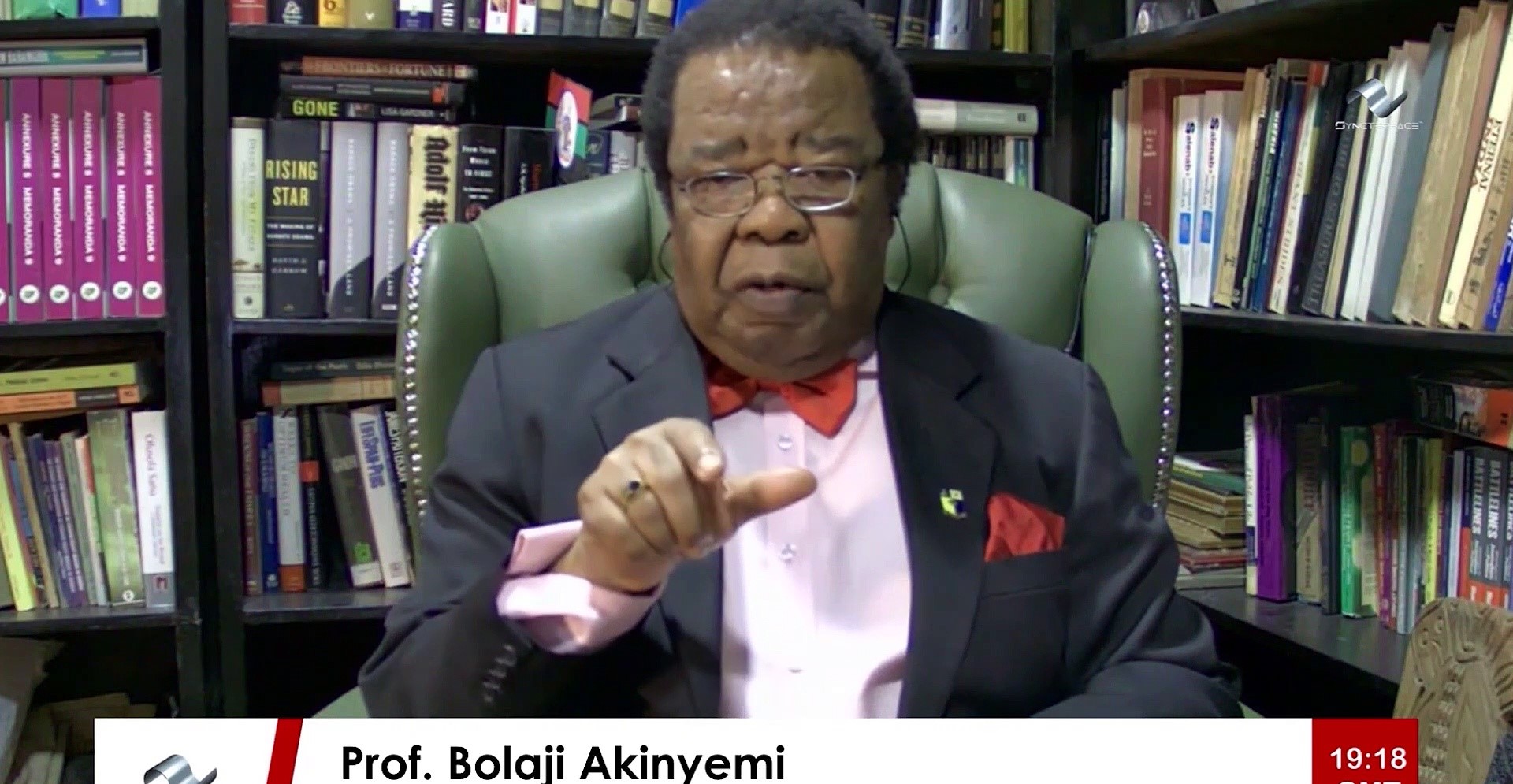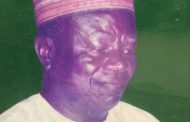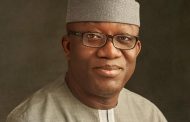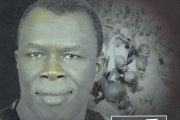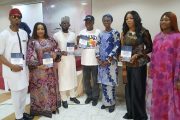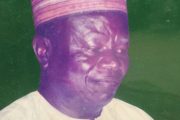By Prof Hassan Saliu
Prof. Bolaji Akinyemi, a renowned political scientist, administrator, public intellectual, and international relations’ expert, added another year to his age on January 4th, 2025. Writing a tribute to the celebrant imposes a considerable challenge due to his wide-ranging engagements that covers virtually all regimes in Nigeria. He was a student under the Balewa government but researched on its foreign policy. He was associated with the Gowon regime mostly at an unofficial level but got appointed as the DG of the Nigerian Institute of International Affairs (NIIA) by the Murtala Mohammed military government. He was still the DG of the Institute under General Olusegun Obasanjo administration.
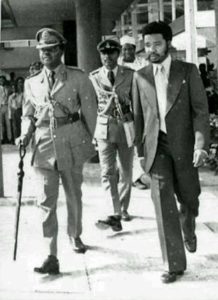
Akinyemi as the archetype intellectual of statecraft in Nigeria
Prof. Akinyemi served the Shagari regime as DG and retreated to the classrooms at UNILAG for a while afterwards but came back as a minister under the Babangida regime. He was involved with both Yar’Adua and Jonathan governments at both official and semi-official levels. In retirement, one cannot rule out the possibility of another form of engagement for him. That was why on another occasion, I have considered him as a man of all political seasons in Nigeria.
The story of how I first came in contact with him is a long one. The abridged version can be said to have started in 1994 when I was on the verge of finishing my PhD programme. After much stress as an innocent Ilorin man (apologies to Prof. Ibrahim Gambari) who was not conversant with Lagos, more so, the Ikoyi area, I had difficulties navigating my way to his office. Eventually, I got to the office without any prior appointment. Our brother who was his Secretary then was from another part of Nigeria. He was, no doubt, a friendly Igbo man who facilitated my interview without any appointment. Shortly afterwards, I was ushered in to meet with the trail-blazer in the field of International Relations in Nigeria. He answered all my questions with special clarifications on the concept of Economic Diplomacy that I was concerned with in my thesis. His view was that the only thing that was new about it was the coinage as the country before that time had been concerned with the basic issues of Economic Diplomacy. I thanked him after the interview and left his office with the feeling that even if I did not get to interview other persons on my list, I was satisfied.
The second time was on the phone in 2003 as the Head of department at UNILORIN. I made a call to him to remind him of my invitation extended to him to come and give a talk to my department. I can still recall how our conversation ended that day. He had said with a sense of finality: “Prof. Saliu, do not worry yourself about the lecture. Even if I am ready to beat down the cost of my coming, you will still not be able to pay. So, let us forget about it.’’ He continued: ‘’I am not sure if your VC can approve the cost of inviting Prof. Akinyemi to UNILORIN.’’ That was the end of our discussions on the issue of the lecture.
Born into a political family and being a son of a privileged priest, Prof. Akinyemi jetted out of the country to the United States for the second time to pursue higher education. He had earlier been to the United States in 1962 on account of him winning an essay competition that was organised by the US embassy in Nigeria. By virtue of the award, he had the opportunity of a three-month stay in New York. On that occasion, he had cause to meet and exchanged words with the President John F. Kennedy. His second visit to the United States was for education before moving to Oxford University in UK to obtain his doctorate degree in 1969 at under thirty, precisely at 29, one of the few Nigerians to have recorded that feat during that time.
After returning to Nigeria in 1970, Prof. Akinyemi began his career as a lecturer in the Department of Political Science at the University of Ibadan. No doubt, he was well-trained, and this is evident in his various involvements, where he has consistently demonstrated his brilliance.
As a Senior Lecturer, he was searched out and offered the platform of the Nigerian Institute of International Affairs (NIIA), Lagos, by the Murtala Mohammed military administration in 1975 at a relatively young age; he was yet to be 40 at the time. There, he made a statement about his training, competence, and capacity that shone brightly. After restoring order to the Institute from its history of instability, caused by the crisis of succession that it was embroiled in, with successive Directors-General barely staying long enough to make any impact in office, he set out to unpack his programmes for the Institute.
Not only was the Institute forward-looking under him, its interventions in giving information on international affairs was an occurrence that popularized international issues from its initial obscurity due to little appreciation shown to getting the public informed about Nigeria’s international relations. What was a void in the conduct of Nigeria’s foreign policy was corrected by its repeated but invaluable interventions through its Director-General. Indeed, Nigerians and non-Nigerians were always anxious to watch the NTA because of the expectation that Prof. Akinyemi, with his Afro hairdo, would make an appearance to educate the audience on international issues.
He was not only giving education but also, at times, crossing the boundary of policy by highlighting what he believed would serve Nigeria’s interests. While his incursion into the policy arena was appreciated by unofficial channels on foreign policy, his fingers were nearly burnt on a few occasions, with at least one or two queries issued to him as the DG for digging too much into official issues or causing embarrassment to the state in his unrestrained public appearances. In one instance, he was getting both a query and a commendation for a particular performance. General TY Danjuma commendation neutralized the incoherent query from the Permanent Secretary of the Ministry of Foreign Affairs. In Nigeria, you can be chastised for being hyperactive.
He would not stop, apparently because he believed the platform he had should serve the public interest, rather than narrower regimes’ interests. Things do not work out, unfortunately, that way in Africa, where public officials guard jealously their jurisdictional possessions, not minding their transient nature. Ordinarily, one’s worry about the low level of engagement should not have mattered, but in most cases, the desirable impacts are often not seen.
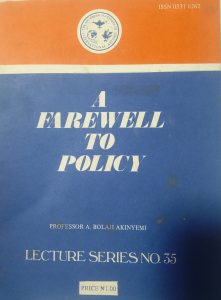
Whether one calls Akinyemi a radical, agent of imperialism or the Seagull, there is much on offer in this text if Nigeria ever appreciated a grand strategy in her calculus of power!
As an activist kind of DG, Prof. Akinyemi raised the profile to such a height that other DGs after him have been struggling to match his record of performance. He was not waiting to be invited on matters of foreign policy; he was literally throwing himself into the arena with a profound level of analysis. This tendency created problems for him with the foreign policy bureaucrats, who felt he was taking the shine out of them. Nevertheless, he was made a regular leader/member of Nigeria’s delegations to numerous international fora, a tradition that was more pronounced when he served as the Minister of External Affairs two years after stepping down from the position of DG, NIIA.
As a Minister, he had issues with the West, which some Nigerians believed he was a puppet to. He also had issues with China and Israel. In some quarters, he was seen as a Zionist agent. Ironically, there are people who still believe that his exit from Babangida’s government was engineered by interests that were close to a state in the Middle East that he was said to be serving its interests in government. The least one would have expected was the hostility of the domestic environment. He had problems with sections of the Nigerian population because every step of his was suspected.
As he once remarked, the only support he had as a Minister came from the man who appointed him, General Babangida. At a point, those around the General were feeling uneasy with him. Surprisingly, his academic constituency was unfriendly too, with their critical views on him; he was described as an ultra-liberal scholar who was an undisguised imperialist agent. Unfair description I would say!
I do not know what Prof. Sam Egwu would say on this issue of labelling since he has just described me as a far-right scholar. In his words: ‘’Hassan, I do not have any problems with you being a liberal scholar but for being far-right of the right.’’ I will definitely respond to both Prof. Victor Adetula, Omo Oba and the farmer-turned-political scientist and our former President, Prof. Sam Egwu on this issue of labelling of scholars. Whetting the appetite of our members, I have made a few comments on it in my tribute to another of our elders that will be released in March. Before doing that, I am thinking of reporting both of them to the father of Marxism in our Association for protection and judgement on the matter. Although I have been warned not to do so, I will still go ahead in lodging my complaint to him.
To drive home their points about the liberal outlook of Prof. Akinyemi, they preyed on his domestic front, and came up with the idea that, given the composition of his home front, he must be an agent of imperialism. However, as I said in my tribute marking his birthday two years ago, and given my recent association with him, I can say that there is no iota of truth in the statements.
Rather, he was pursuing his initiatives based on his understanding of the issues, driven by the national interest of Nigeria as defined by him. How else can one describe the hostility he faced from western countries that critics believed he was serving-their interests? His singular offence with the west was speaking for Nigeria. As regards the domestic environment, certain extraneous factors were at play. Specifically on China, the experience that our celebrant has had with them at the NIIA should caution our enthusiastic fellow Nigerians about China being a salvation path for Nigeria. As far back as in the 1970s and 1980s, China had graduated from not being only economically conscious country to also have a gaze on politics even if not on the same scale with America. In Prof. Akinyemi’s account, all the dominant countries do not think highly of our country let alone crafting an agreement that truly reflects the actual transactions between them and our nation.
I then conclude that there was a mischaracterization of his person and the policies he pursued while in office. He has nevertheless been a major face of engagement with international issues, especially on television stations, dissecting international issues. He is a delight to watch and listen to because of the rich historical accounts that he gives to back up his analyses.
For the records, some of the policy initiatives he introduced as a minister outlived him in office. For instance, the concept of Technical Aid Corps (TAC) is still being sustained as Nigerians are still being sent to other countries in the Pacific, Africa and others to help in manpower development of these countries. Although the Concert of Medium Powers, another of his pet projects, was rested after his exit from government, it is being reincarnated in another form, BRICS, with the same essential considerations propelling the new structure. Prof. Bola Akinterinwa, another former DG of NIIA, on account of the rising profile of BRICS, has referred to him as a Prophet but I would rather refer to him as a far-sighted Minister in view of the negative connotations that surround the concept of prophethood in our nation.
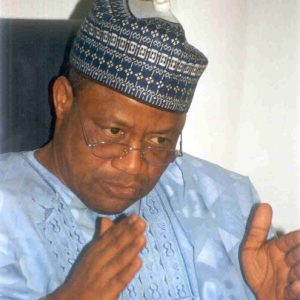
IBB – gave Akinyemi the ultimate beat – foreign policy chief
I crave the indulgence of my readers to pass some comments on some of the issues that involved our eminent Professor of International Relations who has popularized the discipline through his public engagements. He is, no doubt, a realist scholar just as Prof. W.O Alii has once described me too in my base in Ilorin. But he is also an idealist who leans more on the essential stuff of idealism in passing his messages. Two of these instances will suffice on this occasion. He once, perhaps informed by frustration, canvassed for the deployment of black bomb to get the apartheid South Africa to be more sensible in allowing for a multi-racial society in that country. At another occasion, he propounded the thesis of Prior-Consultation in rebuking Libya in 1986 over the attack of USA on the country.
From this end, I think it is idealistic to think that the African bomb (juju) can withstand the lethal power of modern weapons with their highly destructive capabilities. Specifically, it was not necessary to talk about prior-consultation, if the power was really there on the part of Nigeria as an African liberator to do the needful on the issue of Libya. In any event, that country would have consulted with Nigeria if it had been convinced that the preachment of the realist school (elements of manifest power) were to be there in the first instance.
To my mind therefore, that policy stance that was instigated by pressure coming from Libya was in a way a low point in Nigeria’s foreign policy. It would have been better to let it pass without a word from Nigeria. I would be greatly surprised if Libya had expected our nation with its cozy relationship with America at that point in time to do anything for her. In my view, the doctrine was heavily influenced by a dose of morality that the realists in their classical offering have frowned at given Nigeria’s claim of being a big brother in Africa. The popular view that time, however, was that there was no way Nigeria could have done anything to the contrary given the huge expectation placed on the USA for her successful implementation of the Structural Adjustment Programme (SAP). Somehow, it took the country more than forty days to be able to speak on the issue of the attack on Libya.
Notwithstanding, at his age, he is the most sought-after Professor of his generation in dissecting global affairs in public space. Perhaps his state of mental alertness has equally made him an attractive choice to be invited to serve the Nigerian State. He was the co-chairman of the President Goodluck Jonathan confab. Earlier, he was a member of the Uwais Committee on electoral reforms constituted by the President Musa Yar’Adua Government. No one should think that the Professor is only content with being in the classroom and semi-official assignments.
He is one of our members who have embraced practical politics. He was for once a politician, taking after his father, who even attempted to be the President of Nigeria. He emerged from his native Osun State during the transition programme of the Babangida administration but could not advance further because of the monetized political environment and the intrigues that characterize politics in Nigeria.
He later gave his support to Chief Mashood Abiola, who went on to win the primaries of the Social Democratic Party (SDP) at the Jos convention in 1992. The annulment of the June 12 1993 presidential election, which culminated in General Sani Abacha coming to power, opened another chapter in the life of Prof. Akinyemi. His commitment to the process of re-validating the presidential election results, which was stopped abruptly, turned all the agitators for June 12 into marked men and women vilified by the Nigerian State notably under the General Abacha government.
Consequently, Prof. Akinyemi became a nomad of sorts, escaping from Abacha’s killing field. For some years, he was busy condemning the regime from one Western capital to another, tightening the noose around the neck of Abacha’s regime, which fetched it some sanctions in aid of the June 12 1993 presidential election results. He only returned to Nigeria after NADECO’s assignment, following the death of General Abacha in 1998.
Since returning to the country, he has devoted himself to intervening in the public space, offering suggestions on how things can get better in Nigeria. He occasionally places his services at the disposal of the State, giving expertise opinion to it. In his free time, he grants interviews and resorts to writing articles while also being available for public speaking assignments.
In 2010, both Profs. Alli and Imobigbe coordinated and edited a book in his honour when he turned 70 years. I was an invited chapter contributor to the book. I wrote on the Politics of Diplomatic Appointment in Nigeria. I still do not know why Prof. Akinyemi made the payment for my token to me directly and much earlier than most of other authors. I may still need to find out the reason from him. However, my guess is that perhaps he did that in appreciation for the efforts involved in making the chapter-contribution in good time.
As a foundation member of the Nigerian Political Science Association (NPSA), who had played a major role in promoting discussions around the formation of a body for Nigerian Political Scientists, Prof. Akinyemi has not abandoned the Association. He is a member of the Elders Committee of the NPSA. He is very passionate about the Association and wishes that our voice is louder in Nigeria’s policy environment. He kick-started our platform programme in 2021 when he spoke on Federalism and Foreign Policy, a lecture that was illuminating and impactful to our members. Prof. Akinyemi was the chair of the session we had on Nigeria’s foreign policy in April, 2024. Unknown to many of our members, he was instrumental to our migration to e-registration for our members when in 2021 he asked me a question on how many were we in the NPSA. Honestly, I could not give any figure as there was nothing for me rely on in answering his question. That ultimately, coupled with other operational challenges, made me to propose the mode of e-registration to the EXCO that birthed the policy. He was awarded a fellow of the Association in 2019 at the Calabar conference of the NPSA.
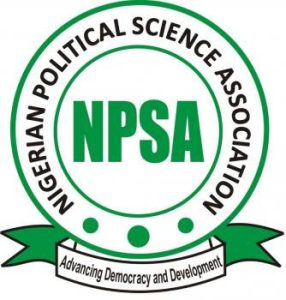 While appreciating the role he played in bringing about the NPSA, I have heard it from multiple sources that he was equally a strong force behind the formation of the Nigeria Society for International Affairs, (NSIA). Indeed, he was at the Ibadan conference of the Society in 2012. It held two more conferences afterwards in 2014 and 2016 before proceeding to the intensive care, living on a life support.
While appreciating the role he played in bringing about the NPSA, I have heard it from multiple sources that he was equally a strong force behind the formation of the Nigeria Society for International Affairs, (NSIA). Indeed, he was at the Ibadan conference of the Society in 2012. It held two more conferences afterwards in 2014 and 2016 before proceeding to the intensive care, living on a life support.
My path and his have also crossed on the platform of the Academy of International Affairs which he has founded. It all started when he gave me a call and invited me to be a member of the Academy. I considered it an honour to share the same platform with our highly respected Professor. I did not bother to ask questions about the details and its mode of operation before becoming a member of the Academy. Under him, the Academy has been trying its best to make impact in the unusual policy environment prevailing in the country. Prof. Akinyemi is so passionate about the Academy. By his estimation, we should by now be approaching the moon in our impact level as a foremost think-tank on international affairs in Nigeria with a mandate covering Africa and indeed, the world.
It is necessary on this occasion to say that some persons believe that our Professor is intolerant of dissenting voices. This is an erroneous belief on which I shall now cite two of my personal experiences with him to correct the notion. First, I disagreed with the justifications that he once gave for inviting a former Minister of Foreign Affairs in Nigeria to be a member of the Academy on the group platform for the simple reason that the era of the affected minister though long was ineffectual without any worthwhile impact. I reacted somehow angrily to the nomination but I later deleted it. I then called Prof. Akinyemi up on phone to register my disapproval of the nominee. Surprisingly, he said he had read my post on the matter before I deleted it. Our discussion then ensued. I cannot say I succeeded in convincing him bust at the end of the day I could say that I had succeeded in reducing the premium he attached to the issue as he was less vociferous in his subsequent campaigns on the matter.
I, however, succeeded with him one hundred per cent over another issue. A post was made on the group platform that would naturally have attracted the disapproval by our President. Upon seeing it, I gave Prof. Akinyemi a call. I appealed to him to ignore the contents of the post as no one can be sure of one hundred per cent compliance with rules on any group platform. He said he had not seen it but that he would take my advice because as he said on that occasion: “Prof. Saliu, I know that you are not a flippant person. You speak on issues when you have something to say. I will pretend not to have seen it.’’ He did just that! The point I am making is that Prof. Akinyemi can at times be rigid on the course of his beliefs but he is also a good debater who listens and can give up his preferred line of argument in the face of unassailable facts.
This occasion of the 83rd birthday of Prof Akinyemi, affords one the opportunity to pray for a long life and good health for us to continue to enjoy the intellectual menu that he has been serving us with. He enjoys analysing political issues perhaps as a son of a teacher, Priest and politician who once served as a member of the House of Representatives under the First Republic in Nigeria. Prof. Akinyemi has taken after him in his pursuit of progressive politics epitomized by his father who was a staunch member of the Action Group, AG.
Prof. Akinyemi is happily married to a Nigerian woman from another continent and the marriage is blessed with lovely children and grandchildren. As this eminent member of our Association marks another birthday, the NPSA rejoices with him and his family. The prayer of the EXCO is that he lives long in happiness and health to continue to serve our nation in the capacity that befits him.
Happy birthday, Sir. Many happy returns!
The author, the incumbent President of the NPSA is of the Dept of Political Science, UNILORIN

